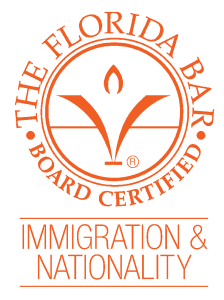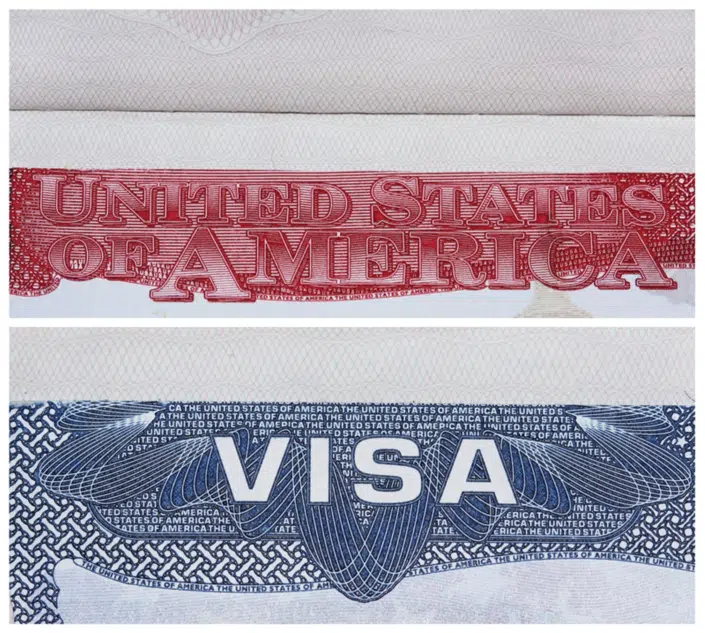Are You Among the Elite Professionals in Your Field? Unlock Your Potential with the EB-1 Visa for Extraordinary Ability
The EB-1 category for persons of extraordinary ability is one of the most prestigious employment-based visas available for foreign nationals. This visa category is designed for individuals who have risen to the very top of their field, whether it be in the sciences, arts, education, business, or athletics. If you are a standout professional with a proven track record of excellence, the EB-1 visa could be your pathway to permanent residency in the United States.
Eligibility Criteria: Demonstrating Extraordinary Ability
To qualify for the EB-1 category, you must meet at least 3 out of the 10 criteria listed below. These criteria are designed to establish that you possess extraordinary ability in your field of expertise:
- Criteria for Demonstrating Extraordinary Ability
- Nationally or Internationally Recognized Prizes or AwardsEvidence of having received lesser-known but still significant awards that recognize your excellence in your field. For example, if you are a scientist, a Nobel Prize in your field would be a strong indicator of your extraordinary ability. In the arts, a Grammy or an Academy Award would serve a similar purpose. Even industry-specific awards, such as the “Engineer of the Year,” can be compelling evidence.
- Membership in Associations Demanding Outstanding AchievementProof of your membership in professional associations that require their members to demonstrate exceptional competence. In the medical field, being a member of the American Medical Association, which requires peer recommendations and has stringent membership criteria, can be a strong point in your favor. In law, membership in the American Bar Association or specialized committees can serve as proof of your exceptional competence.
- Published Material About YouArticles or publications that feature you or your work in professional journals, major trade publications, or other significant media outlets. For an entrepreneur, features in Forbes or Entrepreneur Magazine could serve as strong evidence. Academics might consider citations of their work in scholarly journals, while artists could point to reviews or features in prominent art or lifestyle magazines.
- Judging the Work of OthersDocumentation that you have been invited to judge the work of your peers, either individually or as part of an expert panel. For instance, if you’re in academia, serving as a peer reviewer for a prestigious journal can be a strong indicator. In the business world, being on a judging panel for industry awards can be compelling evidence. Artists invited to judge competitions or exhibitions also meet this criterion.
- Original Contributions of Major SignificanceEvidence of your original research or contributions that have had a substantial impact on your field. In the field of technology, developing a widely-used software or application would be considered a significant contribution. For environmental scientists, groundbreaking research on climate change that influences policy could be another example. In the arts, creating a new genre or style that gains widespread recognition would be considered significant.
- Authorship of Scholarly ArticlesProof of your contributions to academic literature, including articles you’ve authored in professional journals or major publications. For example, a researcher with multiple publications in journals like “Nature” or “Science” would meet this criterion. In the humanities, publishing articles in journals like “The American Historical Review” or “Critical Inquiry” would be considered significant. Business professionals could point to articles in journals like “Harvard Business Review.”
- Artistic Exhibitions or ShowcasesEvidence that your artistic work has been displayed in reputable galleries or other esteemed venues. For visual artists, having work displayed in galleries like the Louvre or the Metropolitan Museum of Art would be strong evidence. Musicians performing at venues like Carnegie Hall or the Sydney Opera House would also meet this criterion. Authors whose works have been included in significant literary festivals or exhibitions can also use this as evidence.
- Leading or Critical Role in Distinguished OrganizationsDocumentation of your leadership roles in organizations that have a distinguished reputation in your field. For example, serving as a department head at a Fortune 500 company or being on the board of a well-known non-profit organization can serve as evidence. In academia, holding a tenured position at a prestigious university would meet this criterion.
- High Salary or Other RemunerationEvidence that you command a salary or other compensation that is significantly higher than the average in your field, indicating your exceptional ability. In sports, commanding a salary that places you in the top percentile of earners in your league would be compelling evidence. In business, stock options or other forms of remuneration that are significantly above industry standards can also serve as proof.
- Commercial Success in the Performing ArtsProof of your commercial successes, such as box office earnings or other revenue metrics that demonstrate your success in the performing arts. For musicians, substantial record sales and streaming numbers can be strong evidence. For actors, high box-office earnings for films in which you played a leading role would be compelling. Authors with best-selling books also meet this criterion.
Why Choose the EB-1 Category?
The EB-1 visa is often considered the gold standard among employment-based visa categories for several reasons:
- Priority Processing
The EB-1 category typically enjoys faster processing times compared to other employment-based green card categories. This is particularly beneficial for professionals who are eager to establish their careers in the United States without prolonged waiting periods.
- No Labor Certification Required
One of the most significant advantages of the EB-1 category is that it does not require a labor certification. This streamlines the application process, as you don’t have to go through the Program Electronic Review Management (PERM) process, which can be both time-consuming and uncertain.
- Flexibility
The EB-1 visa allows you to work for an employer or for yourself, offering greater career flexibility. Not only can you work for a U.S. employer, but you can also be self-employed. This is particularly beneficial for entrepreneurs, freelancers, and other professionals who prefer not to be tied to a single employer.
- The O-1 Visa and EB-1 Category: A Common Misconception
Many individuals believe that holding an O-1 visa is a prerequisite for applying for an EB-1 green card, but this is not the case. While both the O-1 visa and the EB-1 category are designed for individuals with extraordinary abilities in their respective fields, they are separate immigration benefits with distinct eligibility criteria and application processes. An applicant can directly apply for an EB-1 green card without ever having held an O-1 visa. However, it’s worth noting that if you have successfully obtained an O-1 visa in the past, it may strengthen your EB-1 application, as both categories aim to identify individuals of “extraordinary ability.” Nonetheless, each case is evaluated on its own merits, and prior approval of an O-1 visa does not guarantee success in an EB-1 application. We can guide you through the intricacies of both pathways to help you determine the best course of action for your unique circumstances.
Comparative Analysis of EB Visa Categories
| Category | Immigrant Petition Processing Time | Labor Certification Required | Career Flexibility | Special Requirements |
|---|---|---|---|---|
| EB-1 | Fast | No | High | Extraordinary ability, outstanding professors/researchers, multinational managers/executives |
| EB-2 | Moderate | Yes (waivable for National Interest Waiver) | Moderate | Advanced degree or exceptional ability |
| EB-3 | Slower | Yes | Low | Bachelor’s degree, skilled or unskilled labor |
| EB-4 | Moderate | N/A | Moderate | Special immigrants (e.g., religious workers, certain employees of international organizations) |
| EB-5 | Variable | N/A | High | Investment of $1.05 million or $800,000 in a targeted employment area |
By understanding the nuances of each EB visa category, you can make an informed decision that aligns with both your career goals and immigration timeline. The EB-1 category, with its fast processing times, no labor certification requirement, and high career flexibility, often stands out as the most advantageous option for those who qualify.
Understanding the Kazarian Precedent in EB-1 Applications
The United States Citizenship and Immigration Services (USCIS) often employs the two-part framework established in the Ninth Circuit’s decision in Kazarian v. USCIS to evaluate EB-1 petitions for “extraordinary ability.” While the initial part of the evaluation involves a straightforward counting of the criteria met from the list of 10, the second part—often referred to as the “final merits determination”—is more subjective. It involves an assessment of whether the evidence submitted, when considered together, indicates a level of expertise and recognition that can be categorized as “extraordinary.”
The Weight of Each Criterion
It’s crucial to understand that meeting at least three out of the 10 criteria does not automatically guarantee approval. USCIS may weigh the criteria differently based on the quality and significance of the evidence provided. For example, a lesser-known award may not carry the same weight as a Nobel Prize. Similarly, membership in a less prestigious association may not be as impactful as membership in a globally recognized organization.
Navigating the Kazarian Challenges
At HarrisLaw, we have developed strategies to effectively navigate the challenges posed by the Kazarian precedent. One approach is to provide substantial corroborative evidence that not only satisfies but exceeds each criterion’s requirements. This can include expert testimonial letters, comprehensive documentation of achievements, and evidence of a high salary or remuneration compared to peers in the field.
Another strategy is to prepare a compelling narrative that ties together all the evidence, thereby making a strong case for the “final merits determination.” This involves crafting a cohesive story that demonstrates sustained national or international acclaim and that the applicant’s contributions have been of “major significance” in their field. By understanding the nuances of the Kazarian precedent and preparing a thorough and well-documented application, we aim to maximize your chances of a favorable outcome in the EB-1 category.
In conclusion, if you believe you meet the criteria for the EB-1 category for persons of extraordinary ability, this could be your golden ticket to a fulfilling career and life in the United States. To discuss your eligibility and the application process in detail, please contact us for more information.












